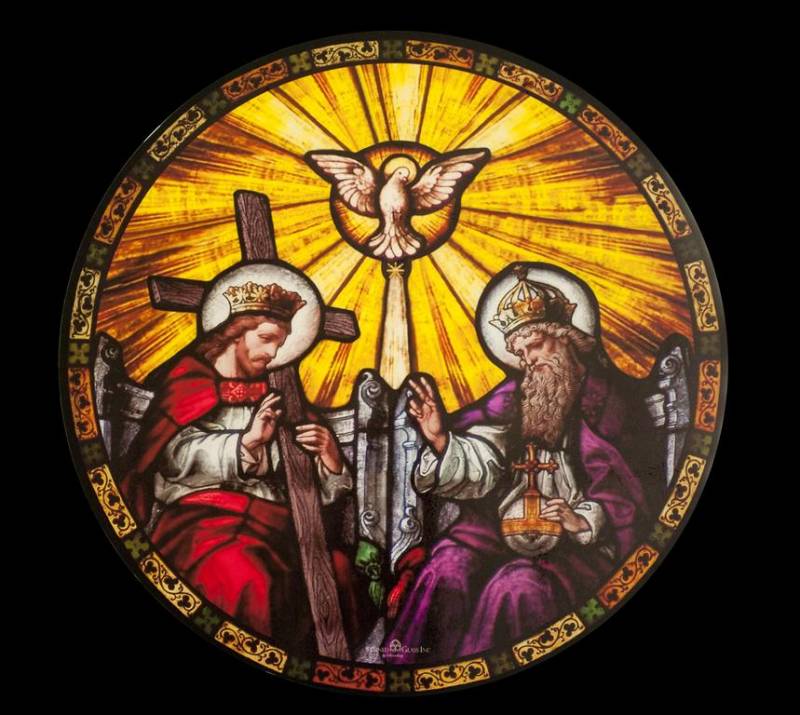
THREE GODS IN ONE GOD
Double speak???
The Trinity belief is found all over the world. With the Hindus it is Brahma, Vishnu, and Siva. In Scandinavia it is Odin, Frigga, Thor. In Roman mythology it is Jupiter, Juno, and Minerva. In Greece it was Agathon, Logos, and Psyche. In Egypt it is Isis, Osiris, and Horus. And …. In Christianity it is God the Father, the Holy Spirit, and Jesus.
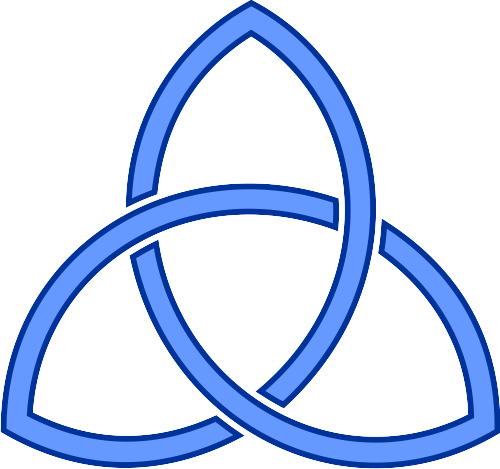
CHRISTIAN IDOL WORSHIPING
Man’s desire for idol worship is so strong.
The first and second holy temples were destroyed because of idol worshiping. The main effects from idol worshiping is becoming gullible, egotistical, and violent. Yes there is a reason for the commandment.
The Lord our God is one Lord. Deut. 6:4
THREE GODS IN ONE GOD
There are many Jewish texts that state the highest spiritual level attainable by man is called “Ruah HaKodesh.” This is literally translated word for word as “spirit the holy.” This is a state where one reaches the sefirah keter, the mental state of God consciousness. The Buddhists refer to this state as enlightenment. But when one attains this level, one does not become God.
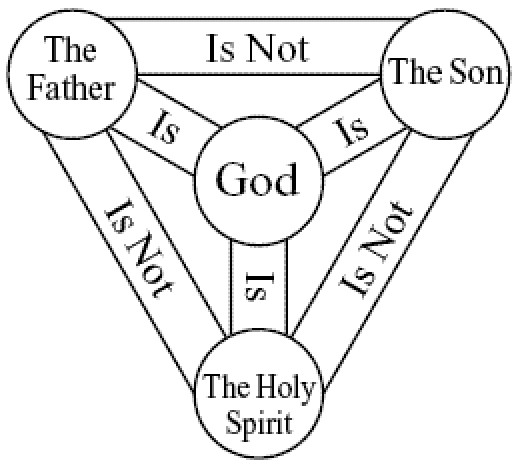
The Christian’s have mistakenly labeled “holy gost” or “holy spirit” as a PERSON ??? …. Is it any wonder that the Jews, who have known for thousand of years what “Ruah HaKodesh” means, think that the Christians have vivid imaginations and no understanding. And this “person” is one of the “three persons in one God.” What does that mean??? The universal answer given by Catholics, Protestants, and Born Again Christians alike is, “It is a Mystery”. They give this answer because they want to pose it as a fact, and also because they have absolutely no explaination what so ever for the ridiculous concept.
Does this mean the Christians believe in multiple gods??? Would a reasonable person think that a person believing this concept is just being gullible??? Also keep in mind that the anointed Kings of Israel during the Temple days held the royal title of “Son of God.” That was a mere honorary title and no King ever believed he was God.
JESUS WAS ELECTED GOD
In 325 C.E. in a vote 218 to 2, Jesus was elected God (at Nicea).
In those days there was an Egyptian Priest named Arius who led a movement that didn’t believe that Jesus was a co-equal with God. He had a large following called Arians. Then there were the Greek Christians led by Athanasuis who taught that Jesus was a God. These two groups had competed for centuries as to what was the true status of Jesus.
In 325 C.E. Emperor Constantine decided to make Christianity the State religion to stop the waring between religious factions in his empire. Constantine favored Jesus being a deity since the man-deities of Mithras and Dionysus were popular among the people. Constantine formed a council at a Church in Nicea, Turkey, to establish the status of Jesus. He excluded bishops from the Arians and conducted a vote to determine if Jesus was a co-equal to God. The vote was 218 in favor with 2 dissenting votes. From then on Jesus was a co-equal with God. Jesus was then a two persons in one God — a “di-inity” –
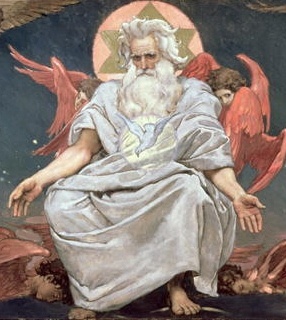
God the Father
WHAT ABOUT THE TRINITY? WHAT ABOUT THE “HOLY GHOST?” WHAT ABOUT THAT GOD PERSON?
Well the Holy Ghost wasn’t a God until he was added 56 years later. In 381 C.E., at the Council of Constantinople, it was declared there were not just two persons in one God, but that there was three persons in one God. This is the first time Christians doctrine established that there was a “trinity” as God. I guess two Gods weren’t enough.
There are three that bear record in heaven, the Father, the Word, and the Holy Ghost, and these three are one. John 5:7
With this word of God verse, why was there any voting???
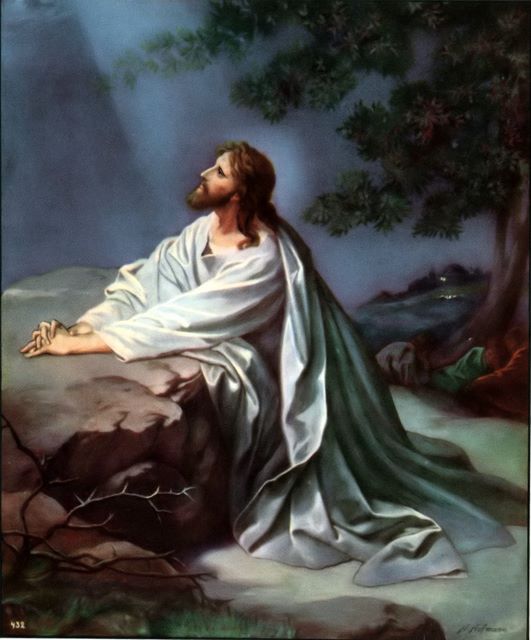
ONE GOD PRAYS TO THE OTHER GOD
In fact before Jesus was taken away by the “sinners” he wanted his disciples to pray WITH him, NOT to him as a God. And at this praying in the garden of Gethsemane, Jesus, as one of the three Gods, was praying to the other God, God the Father or God the Holy Ghost. Or, was he praying to both of them???
Then Jesus went with his disciples to a place called Gethsemane, and he said to them, “Sit here while I go over there and pray.” … Matthew 26:36 to 46
Does this mean that one God asks the other Gods for help???
REVERSING NAMES OF GODS
According to the Trinity doctrine all three persons are co-equal and possess the co-essential oneness of all the other God-persons. What is true of one is true of the other. How does the scriptures sound if we switch the names of the Father and Jesus, the Son?
My son is greater than I John 7:28
God can do nothing of himself. John 5:19
I must be about my Son’s business. Luke 2:49
The kingdom of heaven is not mine to give, but the Son’s. Matthew 2:23
I am come in my Son’s name, and ye receive me not. John v 43
God cried, Jesus, why hast thou forsaken me? Matthew 8:28
No man hath seen Jesus at any time. John 1:5
Jesus created all things by his son. Eph 3:9
God sat down (in heaven) at the right hand of Jesus. Luke 22:69
There is one Jesus, on mediator between Jesus and men. Gal 3:20
Jesus gave his only begotten Father. 1 John4:9
God knows not the hour, but Jesus does. Mark 8:32
God is the servant of Jesus. Mark 7:18
God is ordained by Jesus. Acts 27:31
The head of God is Christ. Eph 1:3
We have an advocate with Jesus, God the righteous. 1 John2:1
Jesus gave all power to God. Matthew 28:18
God abode all might in prayer to Jesus. Luke 6:12
God came down from heaven to do the will of Jesus. John 6:38
Jesus has made the Father his high priest. Heb 10:24
Last of all, the Son sent the Father. Matthew 21:39
Jesus will save the world by that God whom he hath ordained.
Jesus is God of the Father. John 20:17
Jesus hath exalted God, and given him a more excellent name. Phil 2:9
Jesus hath made God a little lower than the angels. Heb 2:9
God can do nothing except what he seeth Jesus do. John 5:19
CAN BE ANYTHING
There are ever-shifting qualities as presented in the Scriptures of the Holy Ghost surpassing the more ancient pagan Gods of the past.
The Holy Ghost is a personal and rational being, a dove, a spirit, an inanimate object, a God, the wind or a wind, an ointment, the breath or a breath, cloven tongue of fire, a bird, or some other flying recumbent animal, a revelator or divine messenger, a medium or element for baptism, an intelligent, speaking being, a lifeless, bodiless, sexless being, a measurable fluid substance, a being possessing a body, ponderable, unconscious substance, a God dwelling within a God, and, finally — the production of the incarnation of the second person God of the Trinity, Jesus Christ.
Many of these fabulous illusions were drawn from prior pagan mythological sources.
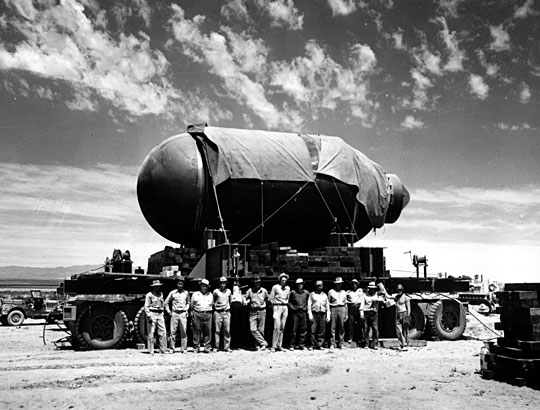
THE PAGAN TRINITY
The trifold nature and triun division of the deity is a universal doctrine that has been around since antiquity. St Jerome says unequivocally, “Nearly every ancient nation that had practicing religions believed in the Trinity or a three part Deity. St. Jerome states in his wriings, “All then ancient nations believed in the Trinity.”
The Hindu bibles (the Puranas) evidence this belief of 150,000,000 people at that time. The three Gods were Brahma, Vishnu, and Siva.
Attencion asked,
“know that I recognize only one God. Inform me, therefore, which of you is the true divinity so I may address to him alone my vows and my adorations?”
The answer given was,
“Learn, of devotee, that there is no real distinction between us. What to you appears such is only by semblance. The single being appears under three forms by the acts of creation, preservation and destruction, but he is one.”
This was written in the Hindu bible 1400 years before Christ.
This Trinity belief is explicitly the same doctrine found in the ancient Brahimin, Persian, Chaldean, Chinese, Mexican and Grecian religions, all much older than Christianity.
Plato clearly taught this trinity belief in his Phaedon, written four hundred years B.C.E. His terms are exactly like those taught in the New Testament. Plato’s first terms for the Trinity was Agathon, Logos, and Psyche.
Agathon, meaning the supreme God or the Father. The second term he used was Logos, which in Greek means the Word. The third term he used was Psyche, which in Greek means soul, spirit or ghost. His terms are the exact same terms that are today used by Christianity. The same as found in St. Johns Gospel. Is the foundation of the Christian Trinity coming from Plato?
The ancient writer Chataubron writes of an ancient Greek inscription on the great obelisk in Rome saying it read 1. The Mighty God. 2. The Begotten of God (Christ is declared to be the only begotten of the Father in John 1:14) and 3. Apollo the Spirit. The Greeks had three Gods, the second God was begot by the first God, and yet all of these three Gods were considered as one.
The first God was the planner of creation. The second God was the creator. The third God was the ghost or spirit which moved upon the face of the waters and infused life into the creatures of creation. This infusing life into the waters is similar to the spirit being infused into Christ at his Baptism by John the Baptist.
A Christian writer in the fifth century wrote regarding the trinity,
“The Athenian sage Plato marvelously anticipated one of the most important and mysterious doctrines of the Christian religion.”
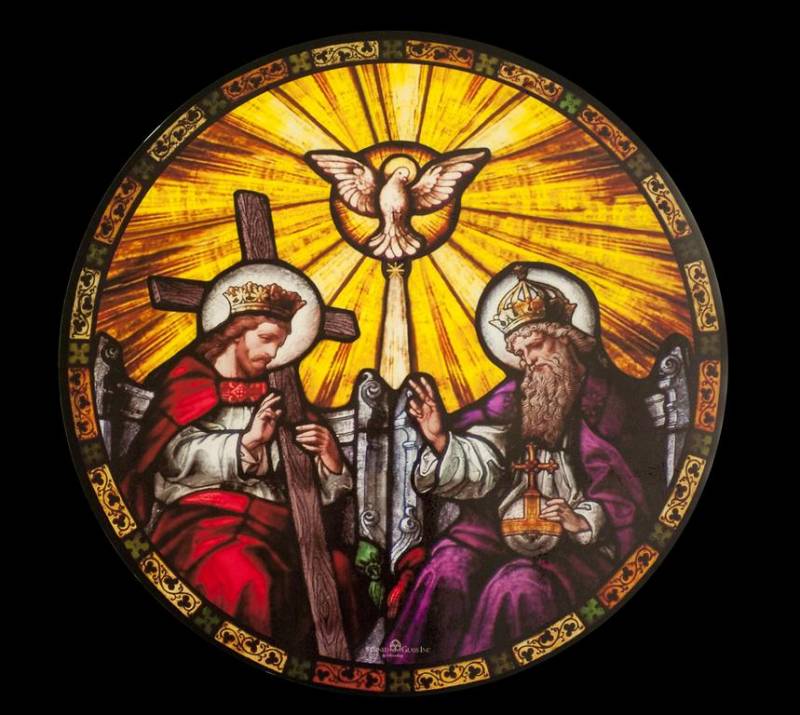
OLDEST MENTION
Christians still claim they were the originators of the Trinity doctrine with ridiculous statements like this, even though they acknowledge that the concept had been around for thousand of years prior.
The oldest mention of the Trinity is found in the Brahmin and Hindu religions. The terms used were
1. Brahma, the Father or supreme God.
2. Vishnu, the incarnate Word and Creator.
3. Siva, the Spirit of God, or the Holy Spirit or Ghost.
Each term matches the Christian Trinity yet was 2,000 years older than Christianity. The Christian Trinity was born of heathen parents, the offspring ofpagan mythology but claimed by Christian disciples as a gift of divine revelation.
THE COMMANDMENT
You shall not take the name of the LORD your God in vain, for the LORD will not hold him guiltless who takes his name in vain. Genesis 20:7
You shall not take the name of the LORD your God in vain, for the LORD will not hold him guiltless who takes his name in vain. Deuteronomy 5:11
And the decrees and laws, and the Torah and the commandment that he wrote for you, you shall observe to do all the days; and you shall not fear the gods of others. 2 Kings 17:37